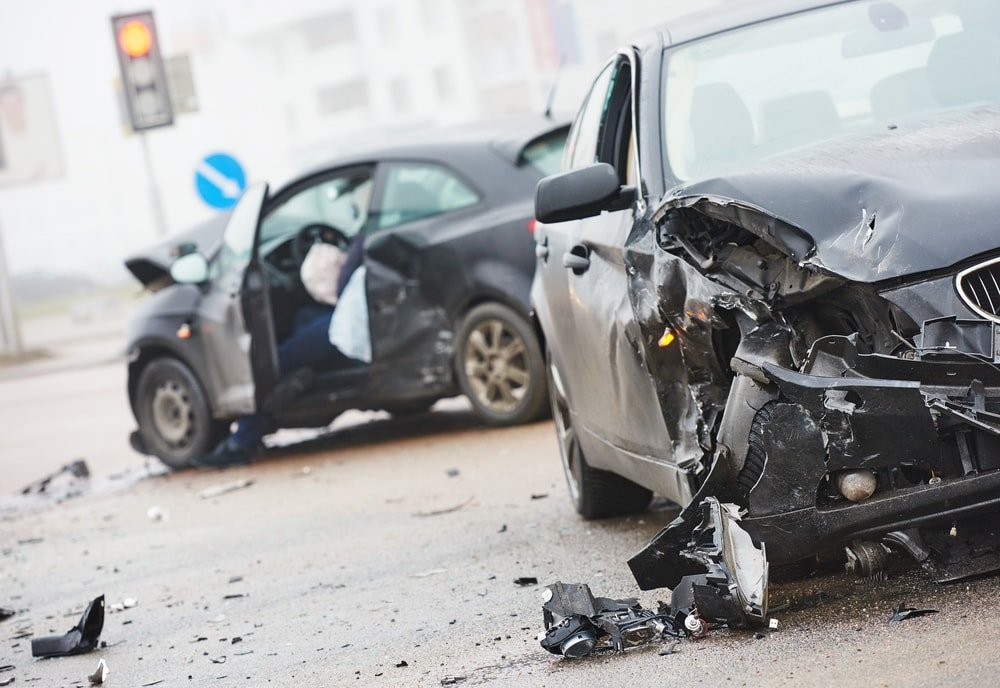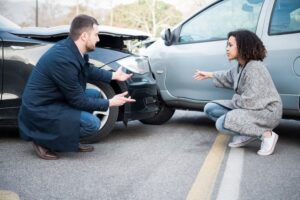
Car accidents can be devastating and often result in significant injury and financial loss. For this reason, South Carolina offers car accident victims the opportunity to pursue a legal claim against the at-fault party and recover the costs of medical bills, lost wages and other expenses.
However, what if both drivers are partially at fault for causing a crash? Does an injured motorist still have a legal right to file a lawsuit seeking compensation from the other driver? If you were injured in a wreck and want to know, “Is it possible to still have a car accident claim in South Carolina if I am partly at fault?” the short answer is yes, it may be possible.
It really depends on specific facts of the accident and how much fault each side has for the accident. The law is complex and may limit your ability to pursue damages in certain instances.
At David Blackwell Law, we understand the ins and outs of South Carolina personal injury law. We know under what circumstances you may pursue compensation for injuries. If you have questions about whether you are entitled to pursue compensation after a car accident, you need to have an experienced personal injury attorney review the facts of your accident and explain your legal rights.
Accident Fault Determination Rules – Comparative Fault in South Carolina
South Carolina follows a legal doctrine known as a comparative fault in assigning liability for personal injuries. South Carolina law allows an individual to recover damages for injuries caused by others’ negligence, so long as the person seeking damages is not 50 percent or more at fault for the accident.
How Comparative Fault Works
If the accident investigation indicates that you were partially at fault in a car accident, the initial phase of your case will focus on determining to what extent the accident was your fault. Insurance adjustors will assign a percentage of blame to each party. An experienced injury attorney may provide evidence to show an accident victim was less at fault than the other party. Once liability is assigned appropriately, negotiations for a settlement amount will begin.
How much a victim will recover when they share fault in a South Carolina car accident all depends on how much blame each side has. For instance, if it is determined that a claimant is 30 percent liable for the accident, any compensation they receive would be reduced by 30 percent. That means if a jury awarded $30,000 in damages, the plaintiff would get $21,000, 70 percent of the full amount.
Example of Shared Liability
 You may be wondering, how is it possible for two drivers to share liability for an accident
You may be wondering, how is it possible for two drivers to share liability for an accident
Shared liability is more common than you might think. Nobody drives perfectly all the time. If two drivers fail to pay attention or adhere to the rules of the road at the exact same instance, the risk for an accident goes up.
An example: Say one driver is waiting to make a left turn at an intersection. The driver turns in front of an oncoming car, not realizing how fast the vehicle is traveling. The driver of the oncoming is exceeding the speed limit. In this instance, both drivers would be at fault: the speeding driver for not adhering to the speed limit and the other driver for failure to yield. If an injury claim involving this scenario went to trial, the jury would be responsible for deciding how much fault each driver contributed. They may determine that the speeding driver was 40 percent at fault, while the driver who failed to yield was 60 percent responsible.
The speeding driver would still be entitled to receive compensation through an injury claim, but the amount received would be reduced by 40 percent.
How is Fault Determined in a Car Accident Case?
Determining fault in a South Carolina car accident case involves three entities: law enforcement, the insurance agency, and the courts.
Directly after an accident, a law enforcement officer will interview all involved parties and any witnesses. The officer will ask questions to try to piece together what happened. To corroborate the information in the accident report, the investigating officer may take photos of the scene of the accident. The officer may issue citations for violations of traffic laws. In the incident described in the example, a responding officer might issue citations to both drivers, to one for speeding and to the other for failure to yield.
Once a claim is filed with an insurance company, the insurance adjusters will review the facts and determine each party’s liability. The adjustors will account what is in the police report. Adjustors also will consider medical records, examine vehicle damage, and verify details regarding the insured drivers. They may interview eyewitnesses and review available video footage and images.
The adjustors may assign a percentage of fault to each driver. An insurance company will rely on that determination of the degree of fault in deciding whether to settle a claim and how much to offer as a settlement.
Police reports and determinations of fault by the insurance companies do not determine the outcome of a car accident injury case that goes to trial in South Carolina.
If an accident case goes to trial, then the jury that hears the case is responsible for considering all the evidence, determining fault and whether to award damages.
Where to Turn for Help
If you were partly at fault in a car accident in South Carolina, you may still have a right to recover compensation for your injuries and damages. You should talk with a knowledgeable injury attorney about the details of the accident to get a clear understanding of your legal options. Contact a South Carolina car accident attorney at David Blackwell Law for a free consultation about your accident. Our law firm is committed to representing the right people for the right reasons and to making our community a better place to live. If you have a legitimate personal injury claim, we will fight to take care of you and to seek just compensation for your injuries. Contact us online today to get started.
